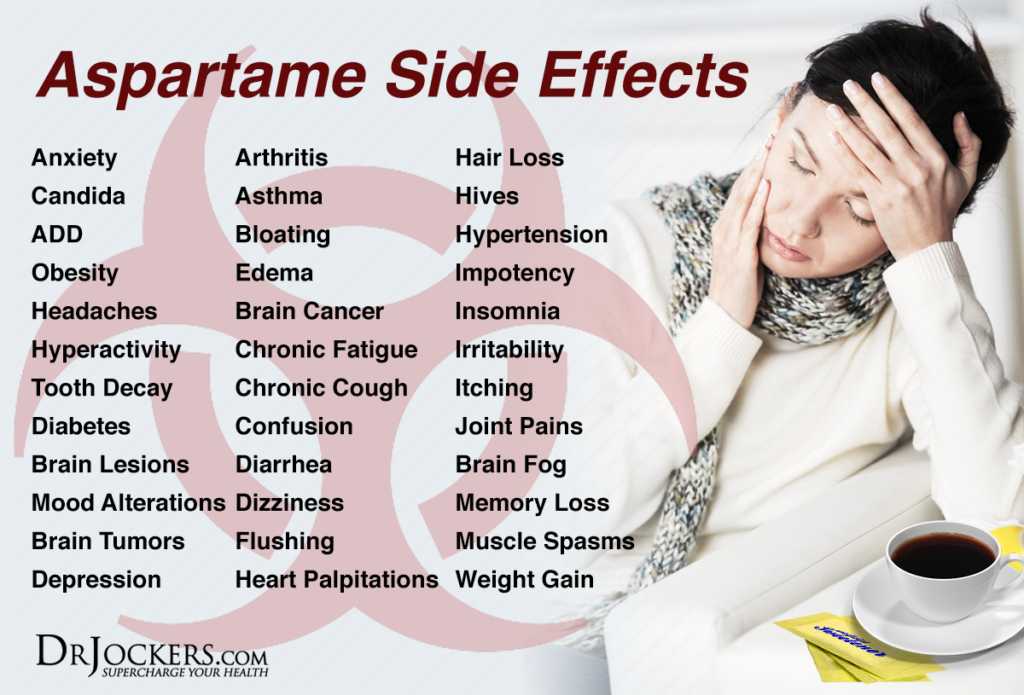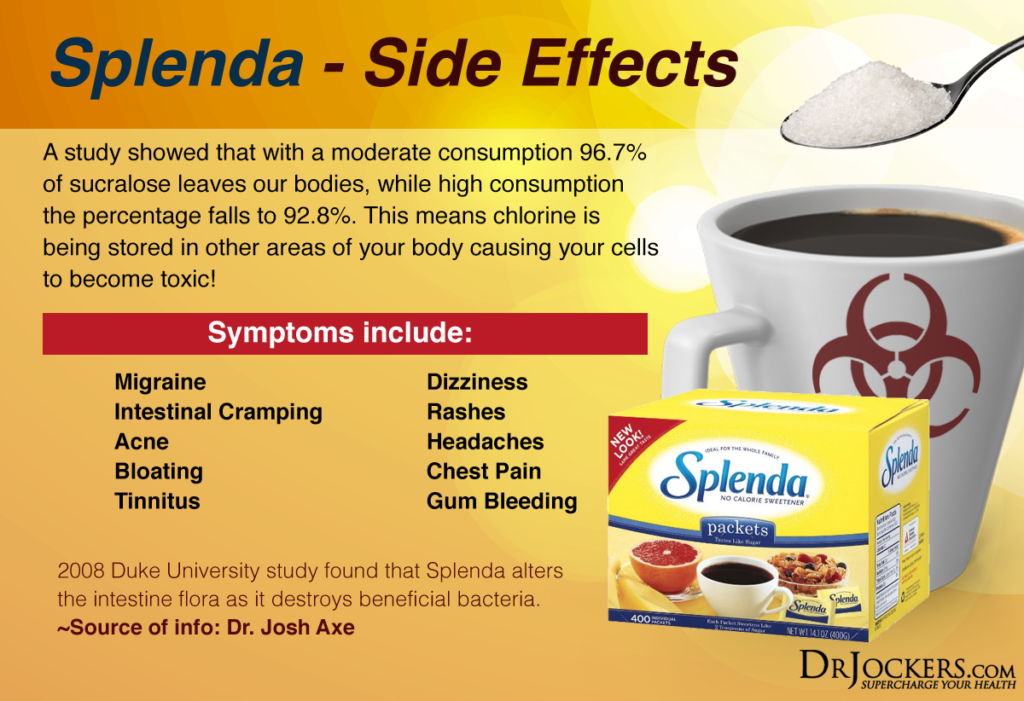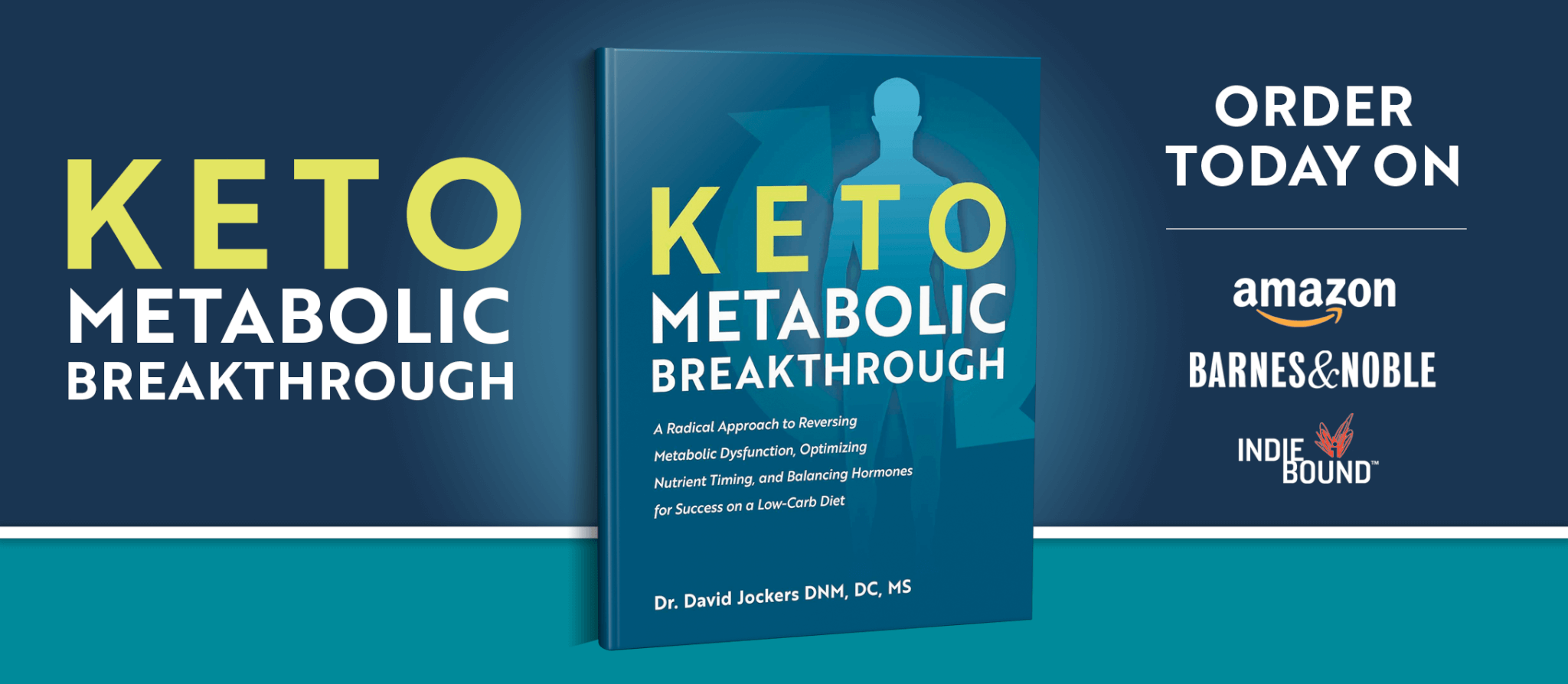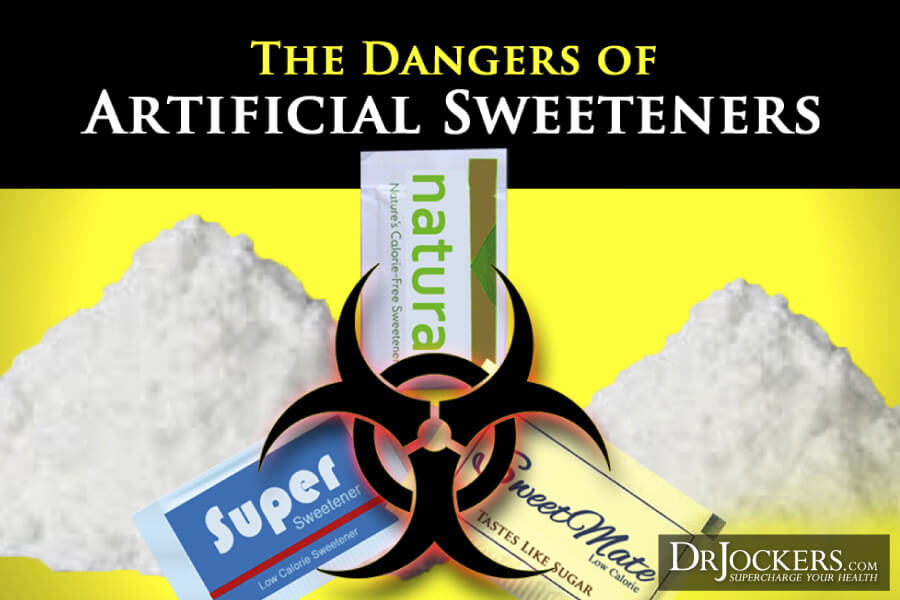
The Dangers of Artificial Sweeteners
Artificial sweeteners are easy to find in every restaurant and most sweet, flavored products throughout North America and other Westernized countries. These artificial sweeteners give us the same pleasure as sugar without the calories and dangerous effects on insulin signaling and triglyceride formation.
This includes aspartame, acesulfame potassium, monosodium glutamate, sucralose, and many others. Unfortunately, these artificial sweeteners and flavor enhancers break down into highly toxic chemical agents that damage important regions of the body.
Ideal sweeteners are formed in nature and are minimally processed. These would include monk fruit, organic sugar, stevia, raw honey, maple syrup, etc. The greater the processing the more dangerous the sweetener can potentially be.
Artificial sweeteners are often devised completely in a laboratory, or they begin as sugar and undergo massive processing. Some of the most dangerous artificial sweeteners & flavor enhancers include the following:
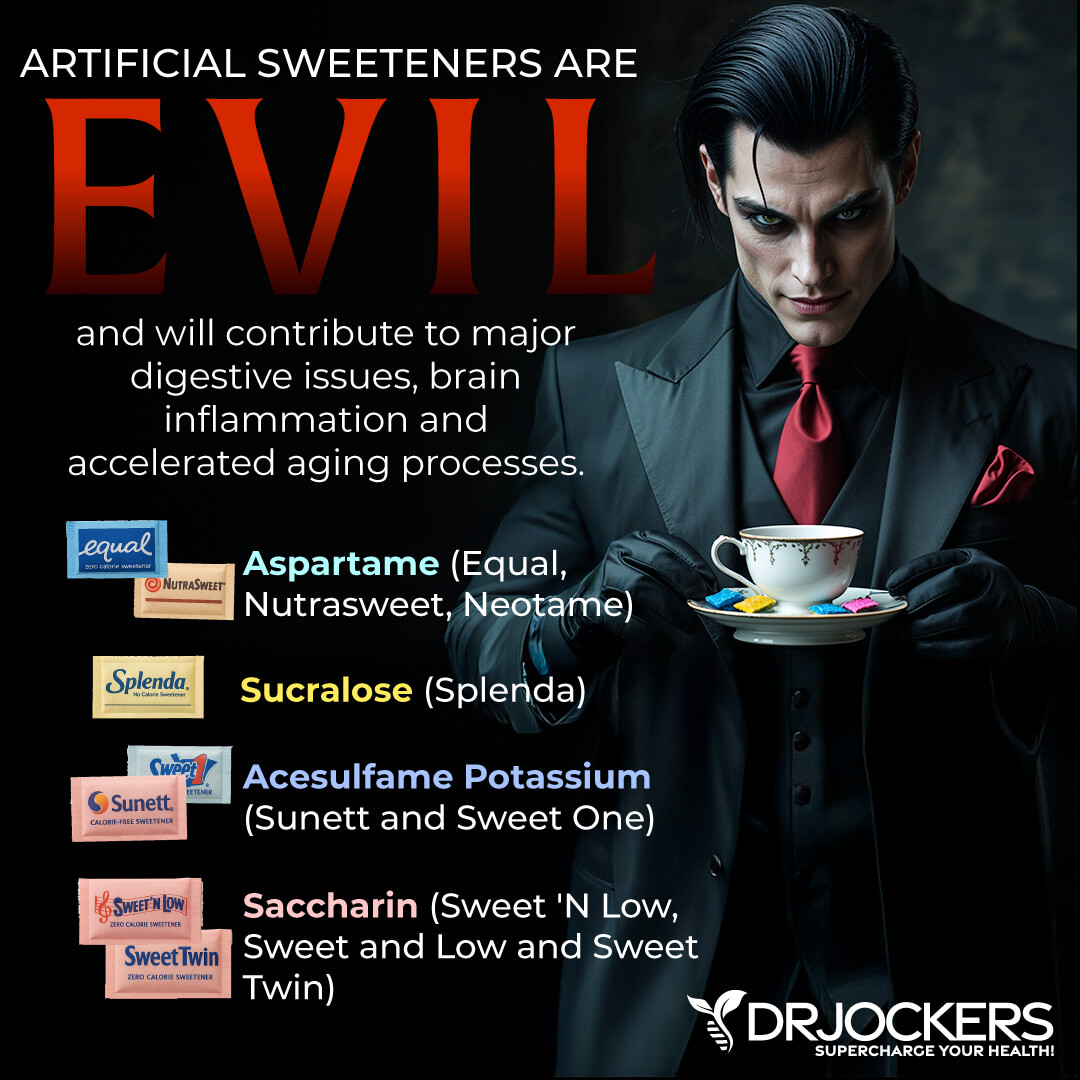
Aspartame:
Originally approved in 1981 for use in food is 200 times sweeter than sugar. It is composed of 50% phenylalanine, 40% aspartic acid, and 10% methanol. Excess phenylalanine has been shown to disrupt normal serotonin levels in the nervous system which can lead to depressive, emotional & psychotic disorders. Individuals who continually consume aspartame will have elevated phenylalanine (1, 2, 3).
Aspartic acid is an excitotoxin that literally over excites neurons and destroys cells. Methanol is also a neurotoxin and its absorption is also increased when aspartame is heated above 86 degrees Fahrenheit. This heating breaks methanol into formaldehyde which damages the nervous system and is highly carcinogenic (4, 5).
Acesulfame Potassium:
This artificial sweetener is often times used in combination with other artificial sweeteners such as sucralose and/or aspartame to mask any form of aftertaste. This sweetener has been shown to stimulate insulin secretions even though it does not increase blood sugar (6).
Elevated insulin increases inflammation and hampers immunity. Since Acefultame does not increase blood sugar this insulin response can stimulate reactive hypoglycemia. It has been linked to leukemia, breast cancer, thymus cancer, and chronic respiratory diseases (7).
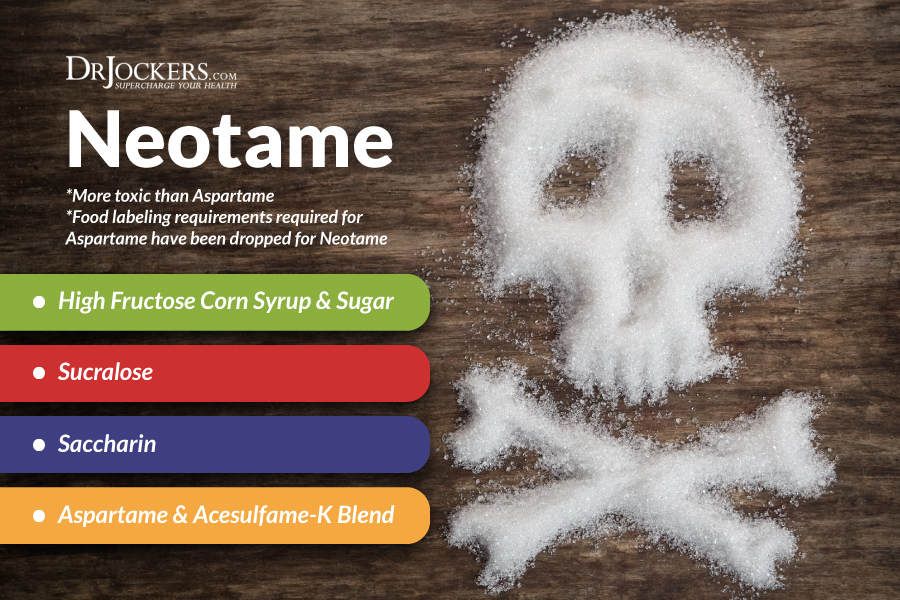
Monosodium Glutamate is Dangerous:
This flavor enhancer and preservative is used in many canned and packaged foods. The Arizona Center for Advanced Medicine has stated that it promotes the growth of cancer cells and is highly neurotoxic in the body.
Other studies have linked it to liver damage, chronic inflammation, chronic pain, and weight loss resistance (8, 9). It is often included under deceptive names such as autolyzed yeast extract, natural flavorings, soy protein, whey protein isolate, etc.
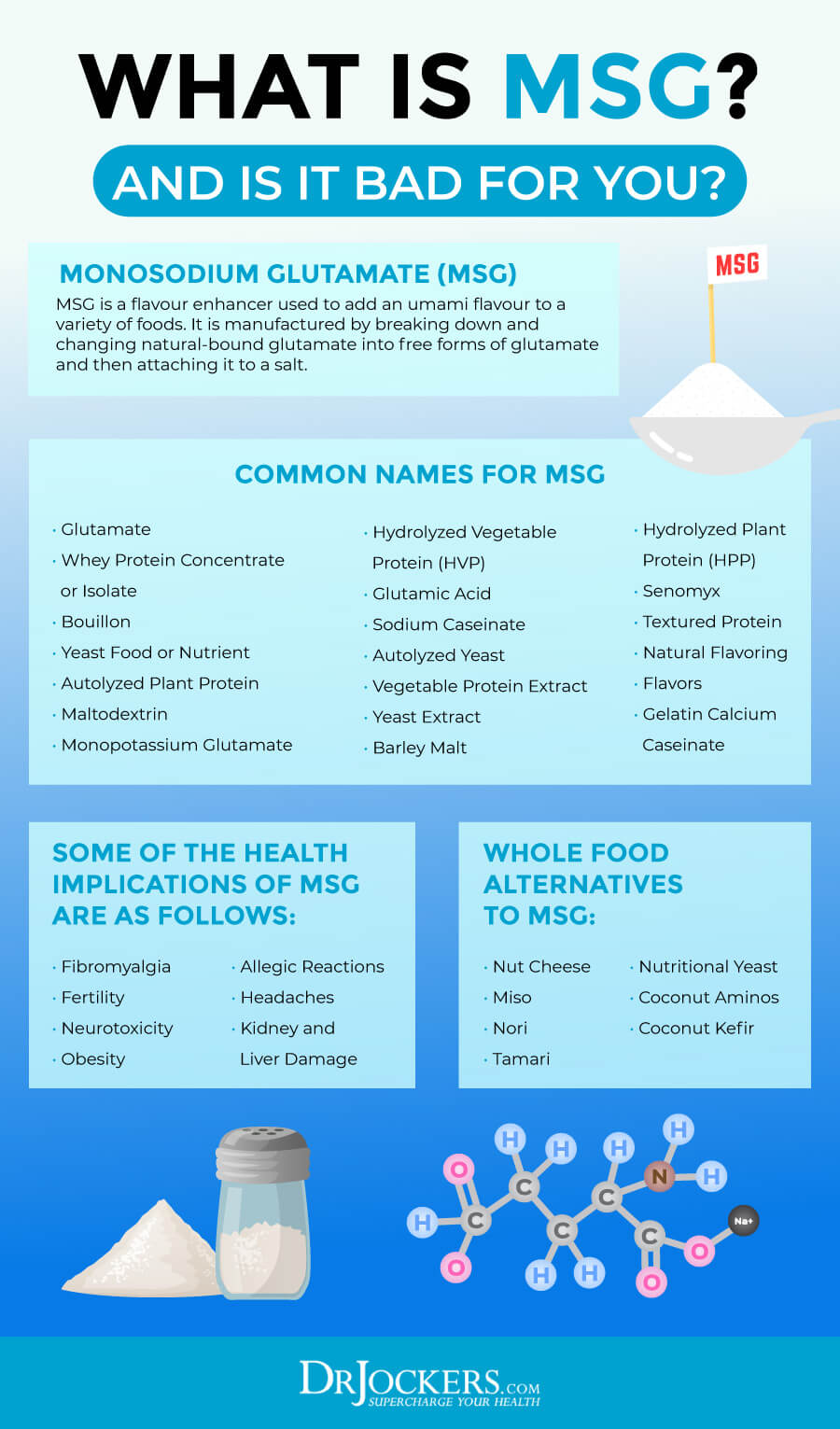
Sucralose:
This artificial sweetener is marketed as if it came from natural sugar. However, it is highly processed with three chlorine atoms that damage the microflora within the human gut (10). The biochemist Dr. James Bown says “sucralose is simply chlorinated sugar.”
Sucralose has been shown to damage the thymus gland and inflame the liver and kidneys. Chlorine is a natural anti-septic that harms the human gut and destroys microflora leading to candida formation, irritable bowel syndrome, ulcerative colitis, Crohn’s disease, obesity, and cachexia.
Sodium Benzoate:
This is a type of water soluble preservative salt that is created by adding sodium hydroxide and benzoic acid. It is found in many soft drinks, energy drinks, and other processed foods and drinks. Sodium Benzoate consumption has been strongly linked with neurodevelopmental disorders such as ADHD and inflammatory disorders such as asthma (11, 12).
The combination of sodium benzoate and ascorbic acid (vitamin C) which is quite common in soft drinks and popular energy drinks creates the highly carcinogenic substance benzene. Benzene is linked with many serious cancers such as leukemia and lymphoma (13). Check out this article for more info on the best natural sweeteners.
If you enjoy information like this, you may be interested in my advanced nutrition and recipe book the Keto Metabolic Breakthrough.
If you want to work with a functional health coach, I recommend this article with tips on how to find a great coach. On our website, we offer long-distance functional health coaching programs. For further support with your health goals, just reach out—our fantastic coaches are here to support your journey.
